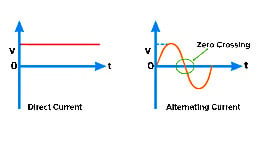[discussion] DC (direct current) power network



As we all know, AC won the "War of the Currents". The reasoning behind this is that AC voltage is easy to convert up/down with just a ring of iron and two coils. And high voltage allows us to transport current over longer distances, with less loss.
Now, the War of the Currents happened in 1900 (approximately), and our technology has improved a lot since then. We have useful diodes and transistors now, we have microcontrollers and Buck/Boost converters. We can transform DC voltage well today.
Additionally, photovoltaics produces DC naturally. Whereas the traditional generator has an easier time producing AC, photovoltaic plants would have to transform the power into AC, which, if I understand correctly, has a massive loss.
And then there's the issue of stabilizing the frequency. When you have one big producer (one big hydro-electric dam or coal power plant), then stabilizing the frequency is trivial, because you only have to talk to yourself. When you have 100000 small producers (assume everyone in a bigger area has photovoltaics on their roof), then suddenly stabilizing the frequency becomes more challenging, because everybody has to work in exactly the same rhythm.
I wonder, would it make sense to change our power grid from AC to DC today? I know it would obviously be a lot of work, since every consuming device would have to change what power it accepts from the grid. But in the long run, could it be worth it? Also, what about insular networks. Would it make sense there? Thanks for taking the time for reading this, and also, I'm willing to go into the maths, if that's relevant to the discussion.
Basically everything runs off 3.7-12v DC at the end of the day
It does make sense to eventually phase out AC in most home and commercial applications
All the small stuff is low voltage DC, but just about every appliance requires AC (ovens, dishwashers, kettles, toasters, washing machines, aircon). Running an oven on 12v DC would be insane.
Most of those don't actually want AC. They just want higher voltage.
Ovens are just running resistive heating. They don't need AC.
Dishwashers might, if the motor is AC.
Kettles don't care. Same resistive heating thing as ovens.
Toasters don't care. Same again.
Washing machines and air conditioners might have motors that run on AC.
All that being said, I don't know how problematic it'd be to use DC motors.
Most fans in your house have fixed or several speeds, because they just run the motor off AC directly. I got a DC floor fan recently, and it was kind of nice to have fine-grained control over the speed, something that you can't do with an AC fan.
kagis
https://www.tenmenelectrical.com/ac-vs-dc-ceiling-fans/
That being said, they sell fans, so I imagine that they'd rather sell a fancier fan.
Yup, I mispoke, but essentially yes, they could be DC, but at a significantly higher voltage than 12v DC.
Some appliances use the AC frequency to timekeep as well, but given almost all appliances have microcontrollers now, that hardly matters anymore.
I would have thought DC motors would have worse longevity, given they have a wear surface due to the split ring commutator? Unless they are talking about ESC DC motors?
Does it? (Genuine question).
That seems rather simplistic - I'm sure there are plenty of use-cases where AC is a better choice than DC and vice-versa (though I'm no EE).
Very rarely is any tech that binary.
Yeah. Basically, the biggest reasons for AC have to do with voltage stepping up and down, and for instant grid load knowledge. Well, and of course, existing infrastructure.
Both have solutions, but aren't as cheap as they are for AC. But, aside from that, DC has a lot of benefits, particularly in end usage efficiency and transmission over distance.
Back in the day, the capability to easily bump up or down the voltage of electricity just wasn't there for DC, so AC was the distance winner (high voltage is needed for distance, low voltage typically needed for usage).